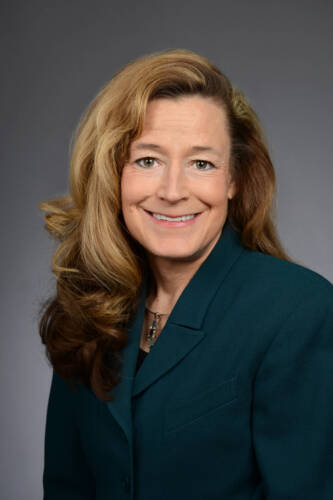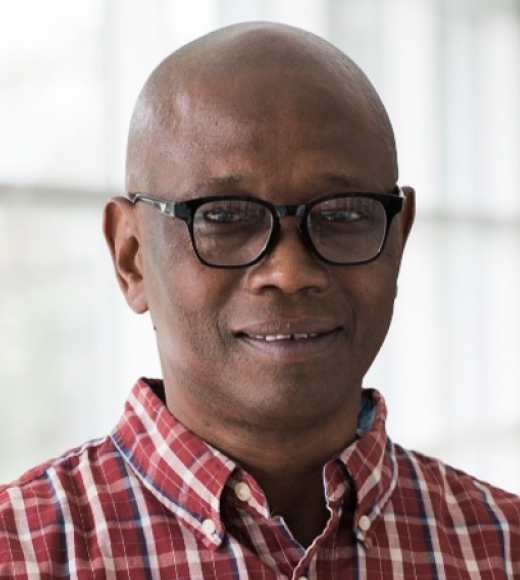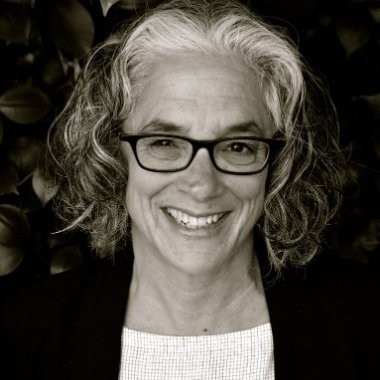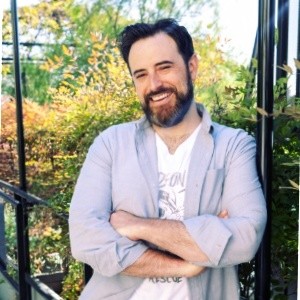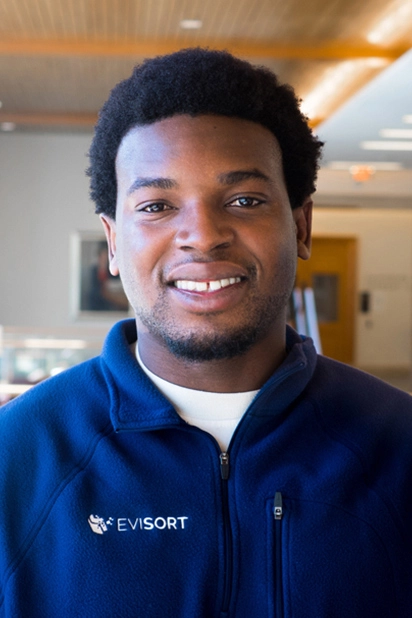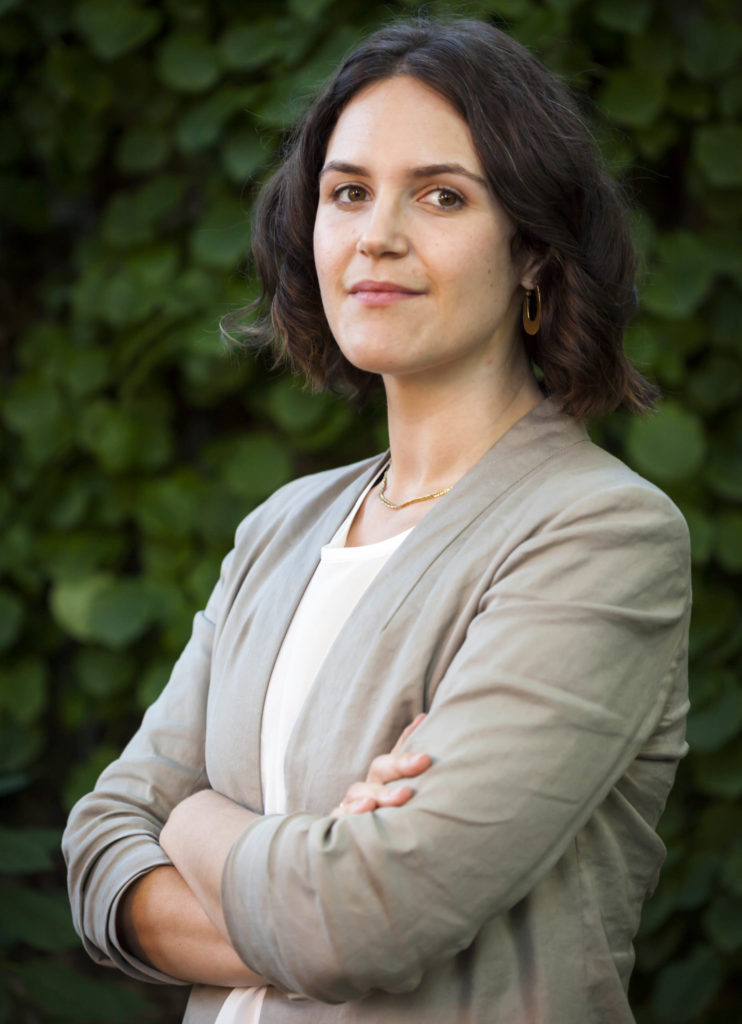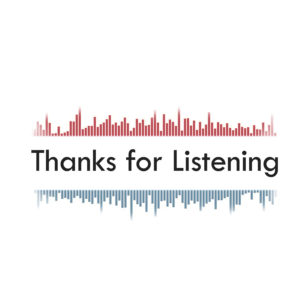
Welcome to the eighth episode of our podcast, Thanks for Listening!
Our guest, Pearce Godwin, founded and now leads the Listen First Project, and has been steadily building the Listen First Coalition—some 300+ member organizations all working to bridge divides and bring people in this country back together again. Pearce shares his insight about the challenges of coalition–building, the powerful impact that Listen First Coalition members have had by joining forces, and seizing on this moment of COVID-driven isolation to use social media and digital platforms to enable people to bridge rather than deepen divides.
![]()
Thanks for Listening is a podcast tracking efforts to bridge the political divide in the U.S. through dialogue and collaborative processes and spotlighting the important and often courageous work of individuals and organizations who are helping citizens engage with one another on challenging topics. We hope that through the everyday examples of ordinary and extraordinary people all over the country, listeners will find optimism that we can—and are—moving beyond partisan divides, as well as inspiration to become part of the solution. This podcast is made possible with a grant from the American Arbitration Association International Centre for Dispute Resolution Foundation.
Hosts
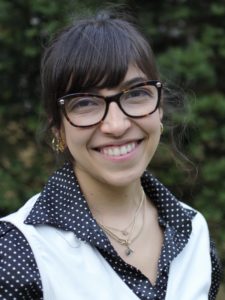
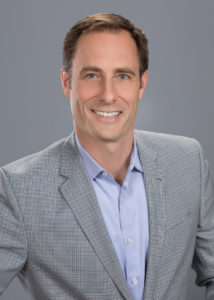
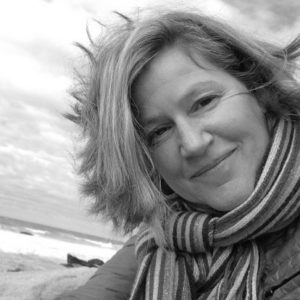
Sara del Nido Budish Neil McGaraghan Kate Ellis
Host Host Producer
Guest
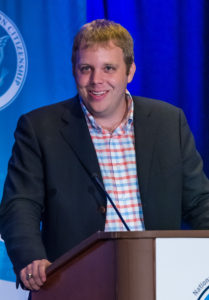 Pearce Godwin is Founder & CEO of Listen First Project, Executive Director of National Conversation Project, and leader of the #ListenFirst Coalition of 300 partner organizations. He catalyzes the #ListenFirst movement to mend the frayed social fabric of America by building relationships and bridging divides. His passion is combating the universally felt crisis of distance, division, and dehumanization across differences with conversations that prioritize understanding.
Pearce Godwin is Founder & CEO of Listen First Project, Executive Director of National Conversation Project, and leader of the #ListenFirst Coalition of 300 partner organizations. He catalyzes the #ListenFirst movement to mend the frayed social fabric of America by building relationships and bridging divides. His passion is combating the universally felt crisis of distance, division, and dehumanization across differences with conversations that prioritize understanding.
Pearce received his BA from Duke University and his MBA from UNC Chapel Hill. He spent five years working in the U.S. Senate and as a national political consultant for presidential and statewide campaigns. Before moving home to North Carolina in 2013, Pearce spent six months in Uganda, where he wrote It’s Time to Listen. That message—printed in dozens of papers across the United States—launched the Listen First Project.
In 2018, Pearce helped create the first National Week of Conversation and hosted the kickoff event, Listen First in Charlottesville. Pearce then launched the overarching, collaborative movement platform National Conversation Project. In response to the coronavirus pandemic, Pearce is leading the #WeavingCommunity campaign in partnership with David Brooks’ Weave Project, celebrating acts of bravery, caring and connection that heal the pain and weave the future we want. The #ListenFirst movement has been recognized by journalists at CNN, Fox News, MSNBC, USA Today, Associated Press, and The New York Times as Pearce has spoken about the mission on national television and to live audiences around the world.
Resources
#ListenFirst Conversation Tips
Field Playbook on Engaging Conservatives in the #ListenFirst Movement to Bridge Divides
Transcript
Sara del Nido Budish [00:00:00] Listeners, first, as always, thanks so much for listening to this podcast. The episode you’re about to hear was recorded while we were all trying to sort out what it means to continue engaging and bridging differences in a world driven increasingly digital due to COVID-19. Since recording though, the powerful and continuing response to the killings of George Floyd, Ahmaud Arbery, Breonna Taylor, and other black men and women has filled the streets, the public squares, the parks and the airwaves. We’re busy at work on an episode that will focus on the topic of racial injustice and dialogue more specifically. Today’s episode, while not focused directly on those issues, could offer important insights into some approaches to building alliances and coalitions that we hope are useful in the context of building a broad, anti-racist movement.
Neil McGaraghan [00:00:57] From the Harvard Negotiation and Mediation Clinical Program, this is “Thanks for Listening,” a podcast about bridging political divides in America. I’m Neil McGaraghan.
Sara [00:01:06] And I’m Sara del Nido Budish. We’ve reached Episode eight of our podcast series. And over the course of the first seven episodes we’ve been in conversation with people and organizations all over the country across different backgrounds and age groups and with different approaches to engaging in dialogue. And they’re all passionate about finding better ways for people to connect across differences.
Neil [00:01:25] So in this episode, we’ll look at what can happen when these kinds of organizations unite and work together in pursuit of a common goal. Our guest today is Pearce Godwin, who is the founder and CEO of the Listen First Project, which is a coalition of organizations that care deeply about bridging divides by building relationships between people, encouraging conversation, encouraging listening and fostering kindness and understanding. As a group, the coalition organizes, publicizes, and provides a platform for opportunities to engage in conversations, to build social connections, and, in their words, to mend the fraying social fabric of America. Today, the coalition has over 300 member organizations.
Sara [00:02:06] But movements aren’t just born overnight. In our conversation today, Pearce shares the pivotal moment that inspired him to pursue this work full time and how he built some early momentum with key partners. He opens up about the challenges of steering a ship as big and powerful as his coalition and the particular importance of drawing conservative voices into conversation and into the coalition. And we’ll hear about what the Listen First Project is doing now to build connections using social media and digital platforms to connect people, even during this particular moment of increased isolation as we navigate the pandemic.
Neil [00:02:38] So I want to give a big, warm welcome to Pearce Godwin, founder and CEO of the Listen First Project. We are so excited to have you on the podcast.
Pearce Godwin [00:02:46] Thank you so much Neil and Sara. It’s an honor to be here.
Neil [00:02:49] And maybe I could start, if you don’t mind, just by reading a brief excerpt from the Listen First Project’s website. And it goes like this: “Increasingly in America today, we don’t just disagree. We dislike, distrust, even despise those who see the world differently. We’re withdrawing from conversations and eroding relationships and understanding.” We, that’s the Listen First Project, “believe in the power of starting new conversations that move ‘us vs. them’ toward ‘me and you.'” And, Pearce I read that because it captures so much of what inspired us to launch this podcast in the first place. Both the way you framed the problem, but also the vision of what’s possible. And we’re especially interested in the approach that you’ve taken to scale up your vision by building a coalition of groups and people who share your goal of moving the country from “us vs. them” toward “me and you,” as you put it. So, the Listen First Coalition today is 300 organizations strong and incredible organizations doing the yeoman’s work of bridging divides in this country. That’s Living Room Conversations, Braver Angels, Bridge Alliance, The Village Square, AllSides, ProCon, Essential Partners. All of these organizations are making huge impact in their own right and they’ve been well-established for years. And, of course, the values that each organization have, when it comes to healing America, they all align very well. But at the threshold here, how in the world do you even go about . . . how do you begin organizing such a broad and deep bench of organizations?
Pearce [00:04:22] Yeah, Neil, I am a person who loves to just make connections, get to know new people. And in 2016, after I’d been doing Listen First Project as kind of a side gig for a few years there starting with that essay I wrote on a bus in Africa, I realized that it was so much more than little old me in Raleigh-Durham, North Carolina. Many of the organizations you just named. I said oh my goodness there’s something called Living Room Conversations. There’s even a National Institute for Civil Discourse. How cool is this? There are other people who are doing, as you mentioned Neil, this yeoman’s work of building relationships and bridging divides. So me being who I am, just my initial instinct, even more than strategy, was gosh I’d love to know these folks. And I wonder what we could do together. And I just had this conviction of the powers of synergy and symbiosis that surely we could more efficiently and effectively achieve a shared mission by working together by what is we now talk about aggregating, aligning and amplifying all of these efforts that are currently underway while, together, with our powers combined, engaging many more Americans in our shared mission. The ultimate goal of that collective spirit and collaborative effort is to reach farther and impact greater than any one organization could alone. So I reached out to some of those, you know, early groups. And the Listen First Coalition, first of 2017, started with a grand total of four organizations that said, “Sure Pearce, we’ll be a part of a coalition and see what we might do together.” And as you mentioned, it’s been so humbling to see that grow over a couple of years from four organizations to now over 300.
Sara [00:06:06] I wanted to dig into a couple of specific initiatives that those in The Listen First Coalition have spearheaded, which I think shed some light on what it actually looks like when you leverage all of that organizational power. So listeners will recall it was almost three years ago now when far right extremists marched on Charlottesville. There were violent clashes with counter protesters and a self-described white supremacist drove his car into a crowd of counter protesters, killing a young woman named Heather Heyer and injuring 19 other people. So The Listen First Coalition mobilized a major response to that tragedy, bringing together dozens of speakers, convening dozens of conversations, to bridge divides and to try and bring some healing to Charlottesville as a community. So I know this was something of a watershed moment for the Listen First Project. Can you tell us a bit about how that experience both shaped and also was shaped by the coalition that you were building?
Pearce [00:07:01] Yeah, certainly, Sara. Those events shook everybody, with few exception I’m sure, across the country. For me personally, it’s the event that pushed me over the edge in jumping into this work full-time. And, like many other people across the country, it fundamentally shifted my appreciation for how dire our situation was in America. We were seeing on August 11th and 12th, 2017 on our television screens, marches escalate to murder. I had a simultaneous thought which was we’ve got this coalition, at that point maybe there were 50 organizations in The Listen First Coalition, there’s got to be some way that we could respond in a way that would be of service to Charlottesville. And with the Listen First Charlottesville, in Charlottesville, event that we had in April of 2018, just a few months later, our goals were to support the continued healing and reconciliation in Charlottesville and to inspire America writ large towards mending our frayed social fabric by bridging those divides with conversations that prioritize understanding. You know, before that event and the first National Week of Conversation, when that event kicked off, The Listen First Coalition was logos on a web page on Listen First Project’s website. It was, you know, group emails and sharing best practices and sharing resources, but we hadn’t really activated to do anything together yet. This was an opportunity to do so, to serve and respond in a way that many of us felt compelled to do. And, you know, as far as the coalition is concerned, it really solidified our relationships to not just enjoy knowing each other, enjoy being on a web page together, but with Listen First in Charlottesville and with the first National Week of Conversation, that was that subsequent week, we saw that The Listen First Coalition come to life in a way that truly, I think, made that collective impact that is greater than anything any one of us could have done alone.
Sara [00:09:03] Yeah, so this was a greater impact than anything that any individual organization could have achieved on their own. And it also sounds like it helped you build some momentum to kind of take that organizational power to an even bigger national platform. So, in that vein, you actually mentioned the National Week of Conversation, which followed right on the heels of Listen First Charlottesville. So tell us about what that was and how that worked.
Pearce [00:09:26] Absolutely. There was a meeting convened in October of 2017 in which several colleagues in the field, Debilyn Molineaux, Cheryl Hughes, Sandy Heierbacher and others, had been talking about the opportunity to have what they were describing as a national holiday around conversation. The original concept was a national day of conversation, something to rally around, an opportunity, a moment for us to really elevate and be more intentional around those personal connections and conversations, especially conversations across differences. Out of that meeting in Chicago, a half dozen of us, many of the organizations that you all already mentioned and do such amazing work individually, said we love this idea. Let’s run with it. Let’s make it happen. And a few months later, the first National Week of Conversation was born. And as I mentioned, we ended up timing it, you know, to be kicked off with the simultaneously planned event in Charlottesville with Listen First in Charlottesville. But that National Week of Conversation was just another example of the field doing something together, reaching farther and impacting greater than we possibly could have alone. And we were so pleased with the success with 100 partners coming together, with millions of people being reached with the common hashtag, adopted #ListenFirst. We thought this can’t be a flash in the pan. This isn’t something that we want the coalition to just do one time. It needs to be an ongoing initiative. And that’s where National Conversation Project came from. That’s where we created an overarching movement platform to carry this forward. Not only the annual National Weeks of Conversation, but on a weekly basis the Listen First Fridays. The opportunity to elevate all conversations 24/7, 365 that are encouraging the social connection, the opportunity to respond to major issues and events with targeted conversation opportunities, local movements and other initiatives. That’s where we took, you know, these, what could have been one-off opportunities, Listen First in Charlottesville, National Week of Conversation 2018, and said this needs to be a sustained effort of the coalition serving in mass for our fellow Americans. And that’s what has continued today.
Neil [00:11:49] Yeah, and I know that sustained effort you mentioned has continued in a really big way as you’ve continued to grow the coalition and among other things, you’ve pulled off the National Week of Conversation 2019 and were on the verge of launching National Week of Conversation 2020 when the coronavirus pandemic hit. And it became quite clear that people gathering in person across the country for a conversation and building community was not going to happen. So you had to adapt and pivot really quickly. And the Listen First Coalition really rallied.
Pearce [00:12:19] Right. So the whole, you know, coalition, which you know seem to be growing by the week, as you mentioned over 300 organizations now, was getting excited and rallied and energized towards National Week of Conversation 2020. It was undoubtedly going to be bigger and more impactful than either of the two that had come before it. And then the world turned upside down. And there was a particular, you know, Listen First Coalition call we had scheduled for March 11. As we got on that call, it was the week that, at least for me and I think for a lot of people, we are realizing that this coronavirus is no longer over there. This is something that’s going to impact our nation, our communities, our families, even our personal health and livelihoods. So the one question on the table was, you know, what’s the impact going to be on this massive event we have planned? And the second was, you know what this may be an immediate opportunity that shouldn’t wait for April, an immediate opportunity to serve our neighbors and nation as we were already sensing there on March 11th that this was not just a health crisis. This was not just an economic crisis. But this was quickly becoming a social crisis. And so out of that phone call, what was going to be weaving community and a divided nation, the first theme that we had had for a National Week of Conversation, became weaving community during crisis. And that weaving community language came from a partnership that we solidified at the end of last year with David Brooks of The New York Times is Weave: The Social Fabric Project that’s at The Aspen Institute. So, you know, really, this weaving community campaign is the culmination of not only the four years of work that went into developing the Listen First Coalition to developing National Conversation Project, but also months of work and the partnership by the co-creators, our National Conversation Project and David Brooks, is Weave Project that set us up in a way that allowed us to quickly pivot as we were really poised for this collective and rapid response to meet what became that urgent moment for neighbors and nation in light of coronavirus. You know, that moment, and I think this really supports what Sara and Neil what y’all have been pointing out here, is these opportunities for action are where the bonds of a coalition are solidified and where the action and the opportunity of collective efforts really come to life.
Neil [00:14:54] Well, that’s right. And that idea of finding opportunity in a time of real difficulty is one of the things that jumped out at Sara and me as we were finishing up work on our most recent episode about social media. You know, we saw that, even with all we know about how social media can emphasize divides, there are opportunities to use social media and digital platforms generally to empower people and engage more productively through disagreement and conflict. And I think that’s one of the most powerful things about what the Listen First Coalition is doing right now with the Weave Campaign.
Pearce [00:15:27] You’re exactly right, Neil. You know, all of us, just from our human experience, know that there’s still nothing quite like being together. Being, you know, closer than six feet from either of you and looking in each other’s eyes and pressing flesh. However, you know, the evolution of technology around social media, around video conferencing, plenty of problems, plenty of challenges that have been well covered, but creates opportunities to connect in a way that, you know, in 1918, if you will, would not have been you know possible for us to remain connected. So this field, which certainly has erred on the side of in-person conversation, suddenly said, how can we make this as rich an experience as it could possibly be, given the necessary constraints of physical distancing that we’re facing in light of the pandemic. So both around the conversations themselves, whether that be on Zoom or Facebook Chat or on Nextdoor, but also in the execution of this Weaving Community Campaign, social media has played an absolutely critical and preeminent role. With the Weaving Community Campaign, we’re inviting Americans to do three things: to connect, care, and create. And all of these lend themselves to questions and props and engagement across social media. For connect we’re asking, what are you experiencing now? Share how you’re feeling and connect through honest conversations. Now, that might be on social media or that might be on Zoom or elsewhere but connect in that authentic way. Care. What do you do for yourself and others? Take care of yourself, your family in your community. And then create. What’s the world you want. Imagine what can emerge from this moment and how we can solve our challenges together. Since launching in mid-March, more than 11,000 Weaving Community stories and posts have reached six million people, with 37 million impressions across Facebook and Twitter. And that’s been fueled by nothing more than the public organic interest in this growing coalition of partners that are not just the Listen First Coalition and kind of the Community Conversations base, but others in civic help and democracy-strengthening fields are recognizing this moment as a moment for us to respond collectively like never before. I mean when have we had in any of our lifetimes, never mind across history, an experience that is so profound, so universal, but also so acutely felt in our lives.
Sara [00:18:09] Well one of the things that I find so interesting in what you’re saying Pearce is that it really has been a quick reaction, a quick adaptiveness, that the coalition has shown to what is happening right now. And, what I’m also hearing is that that is, at least in large part, a result of the sort of scaffolding of relationships, of connections, of sort of infrastructure that you and others have been working hard on for years now. And so I’m curious, I want to get back to the kind of the response to the pandemic in a few minutes but before that just to focus on kind of your strategy for coalition building here. I guess from your perspective, how do you go about partnering? Is it always the more the merrier? Are there sort of considerations that go into how you approach partnerships with organizations? What been your experience there and what’s been your approach?
Pearce [00:19:03] Great question. So initially, absolutely, it was the more the merrier. And, you know, anybody who wanted to play was welcome. And I think an important dynamic that I have observed over time is that any of us who step forward, this is not unique to me, and suggest working together, suggest collaboration. The onus is kind of on that person, that coalition builder if you will, to really make the case and to compel individuals and organizations that their own very noble self-interest and organizational interest will be best served by working together. But the evolution that I’ve seen, and that I’ve been so humbled by, is that from the beginning when the ask was, hey, can we just, you know, put your logo on our web site? We’d love to elevate your work and be, you know, be displayed together and recognized as a cohesive effort. To, I think, a recognition for myself and for many others that there is genuinely more power for even just from the lens of my own organization, from my own personal passions, to doing this work together.
Neil [00:20:21] You know something that you and I have talked about, Pearce, is that even as fabulous as the growth of the coalition has been, there is a risk and I think even a reality, that it appeals more to the left of the political spectrum. And I know you’ve put yourself to the right of center and you have the background working in conservative politics. And I think you’d also agree that you are a pretty clear minority in this field. As a conservative, how do you look at the challenge of making the Listen First Coalition as inclusive as broad based as possible when it comes to trying to bridge that left-right divide?
Pearce [00:20:56] Absolutely. And you’re 100 percent correct. And because of my background as a conservative in Republican politics, I take this as a personal passion and mission as well as a strategic imperative. And, you know, one of our mutual friends, Neil and Sara, Liz Joyner, who founded Village Square down in Tallahassee and is such a veteran and a hero of this field, says to grow empathy toward those with different worldviews moral psychologists tell us we need to have positive interactions with the other. But the hard part is getting people who disagree on politics to occupy the same space so that the magic can work. I love Liz calling it the magic. This challenge, you know, appears to be particularly thorny when it comes to drawing conservatives into civic engagement as its most typically practiced. And off of that wisdom from Liz we’ve pulled together all of the greatest wisdom from psychology. You know, conservative friends and participants, which includes me from conservative leaders across the nation who I know, about how we can make this successful, make this more representative. But what’s been most troubling to me is that, you know, the anger, the antipathy, the fear that have reached new heights in our current political environment have left some people and not people in our field, people in our field obviously have a proclivity to bringing people together across differences, but far too often we’re dismissing an entire population of a given ideology or a given presidential preference as threats to be destroyed rather than fellow human beings, fellow Americans worth understanding. So in this field, overwhelmingly dominated by progressives and moderates, it has manifest among some as an inclination to write off anyone who supports President Trump as unworthy of engagement. But I just I love making this math point that in addition to that being obviously quite questionable from a moral perspective, this mindset to the extent that it may exist is catastrophic to our state admissions. Now, roughly 40 percent of Americans approve of President Trump, regardless of your views, doesn’t particularly matter. 40 percent of Americans approve of the president. So our goal of mending the frayed fabric of America is dead on arrival if nearly half of Americans are not well represented in this effort. So we absolutely must, understanding that our mission depends on it, proactively seek to engage all those who are underrepresented in our conversation work, including conservatives, supporters of the president. I’ll also include faith communities. People in in rural areas and people of color are not as well represented as they need to be in this work for us ultimately to mend the frayed social fabric of America.
Sara [00:23:48] Yes, I mean what it sounds like is that the exact work that the coalition has come together to further in the broader population is, you know, it’s something that you also live every day. It’s mirrored in the members of the organization that challenge of just drawing everyone in. And I’m curious if there have been any challenges around that in terms of staying aligned with one another. I mean, have you encountered any challenges or any moments when it seems like there’s some divergence that, you know, of course, can be productive and helpful, as we know, as conflict folk, but sort of how do you think about that? How do you manage that?
Pearce [00:24:26] Yeah, that’s a good question Sara. And yes, you know, challenges, but understandable challenges and reasonable challenges and challenges that are born not of any one’s ill intent but out of all of our passionate desire to have the greatest impact that we possibly can. But there are a number of people across the field who see the unbelievable potential of us to elevate the individual missions, not diminish. It’s not a zero-sum game. But to expand the reach of and the impact of any individual partner, partner’s mission, while also with our powers combined, creating this collective impact that can truly reach into the mainstream and shift culture, shift those norms, as we were talking about. But yes, I would say, in all candor, that it has been a constant tension and challenge to get more and more organizations to not only appreciate and agree to the theory of collaboration, the theory of synergy and symbiosis, but when the rubber meets the road to dedicate attention and energy and staff time to the collective. That is just a very reasonable and endemic challenge, as I’ve learned from studying all social movements, in creating a successful and cohesive social movement. But as I touched on earlier, as somebody who is just, you know, literally living for this potential impact that we can have collectively at this point, I’ve been so humbled and encouraged by the way that tension has evolved over time. And again, to be clear, if somebody comes to me with an idea of collaboration, there’s some real hard decisions and thoughts and value judgments and cost-benefit analysis that have to be done. So I’m not suggesting that anybody should have jumped in with reckless abandon the first time anyone was talking about this. But I think we have all gained an appreciation of not just the theory, but the practice. When we saw in that first National Week of Conversation it’s tremendous success. When we saw a year ago in National Week of Conversation 2019. It featured on national television with a live interview with leaders. When we saw it reach five million people, which by the way we’ve already exceeded in the first month of this campaign with those six million we’ve reached without spending a dollar on advertising. We’re all, I think, realizing, hey, this doesn’t just make sense in theory, but this is something that, even through my own organizational lens, is going to elevate me to new heights and reach our collective goal more efficiently and effectively and quickly by working together.
Neil [00:27:34] Well, and certainly, you know, being able to point to that kind of scope, that scale that you’re reaching makes a pretty compelling case for the power, the value of working together, as a coalition. You’re all so much mightier together than as individual organizations. And I think that you’ve given us a lot of really great reason for optimism that even if the fabric is frayed, you know, there are millions of “weavers” out there, to use that that term from Weave Campaign. There are millions of weavers out there who see the value of engaging through disagreement to make the country stronger and better.
Pearce [00:28:08] Thank you so much, Neil. It’s humbling just to have this conversation and to take a few minutes to reflect amidst leading a campaign. You know, the goal of that Weaving Community Campaign, and we certainly ask your listeners to get involved at weaving.us and also to be involved on social media and how we can care and connect and create the future that we want, but we’re hoping to inspire millions of Americans to form those authentic relationships and build community. We’re providing this common language, this idea of weaving, and a community for those who are already doing this, who are already building authentic, lasting relationships where they are, but also those who want to. And we are in this space, you know, to the kind of strategic points we’ve been talking about, you know, looking to expand the collaboration of the conversation, the social connection, the healthy democracy type organizations that do seek common purpose in building a foundation of stronger relationships, especially now. You know, for me personally, Neil and Sara, as I’ve been navigating this universal experience of a pandemic I know that some of us might lean on scripture and a higher power. I certainly do myself in my Christian faith. But there’s one Bible verse that’s really been sticking out to me and giving me hope recently. It says, “I am doing a new thing. Now it springs forth. I will make a way in the wilderness and rivers in the desert.” For me, that one verse speaks to the redeeming possibility through this pain. And as my partner David Brooks has said, we are in a valley now, but it’s an opportunity for a new birth. So my ask of your listeners and of all Americans and the whole Listen First Coalition is together let’s help create those rivers in the desert. Let’s help catalyze that new birth for our neighbors and our nation.
Sara [00:30:11] We are seeing so many glimpses, Pearce, of what makes you such a powerful connector and a powerful motivator. And I just appreciate your reflections. And I am glad that this conversation has given a moment for you to reflect on the movement and how far it’s come because it really is an incredible journey that you’ve been on and it continues. So thank you so much for sharing that with us and sharing with our listeners.
Pearce [00:30:35] Thank you both for what you’re doing and for elevating this work and being such a leading part of it.
Sara [00:30:52] Our guest in this episode was Pearce Godwin. Pearce is the founder and CEO of the Listen First Project and a coalition builder extraordinaire. If you’re curious about Listen First Project and you want to find out how you can be a part of the growing coalition or join the Weaving Community Campaign, go to www.listenfirstproject.org.
Neil [00:31:14] So, Sara, you know, one of the reasons we set out to do this podcast was to help show that bridging the political divide in America isn’t just a catchphrase or a fringe activity of a handful of do–gooders or even, you know, an ivory tower theory. And we’ve been able to highlight on this program people on the ground working in all corners of the country and across the heartland, but this coalition inspires on another level.
Sara [00:31:40] It really does. And, you know, it’s one thing to kind of cognitively understand the truth of the maxim strength in numbers, but to hear it put into perspective is really meaningful. You know, going from zero members to 300 members or coalition partners in just a few short years. You know, that sort of growth has enabled the coalition to take this really practical nationwide action. Right. So bringing together people after Charlottesville to heal, holding these National Weeks of Conversation and adapting them during this pandemic. And most recently this Weaving Community Campaign with David Brooks. I mean, to have reached six million people on social media in six weeks is really, really remarkable. And also Neil, I think the fact that the movement came together around listening is really in itself pretty amazing. You know, in some ways, the work of building connections and listening to those who have very different perspectives than we do, that is not necessarily glamorous work. It isn’t easy. And sometimes the moments of victory or fulfillment are these sorts of quieter moments. So the fact that so many people have rallied around that very humble idea is pretty inspiring.
Neil [00:32:43] Well, yeah, and it doesn’t happen all by itself either. It came about with a lot of vision and a lot of really hard work, and I think that anyone who really cares about the work of bridging divides owes a lot to the Listen First Project and all the Listen First Coalition members for not only giving hope that it’s possible to start to rebuild and mend the fabric of society, as Pearce calls it, but that it’s literally being stitched back together in one conversation at a time adds up to real numbers and real progress. And people can do and are doing this work at the grassroots.
Sara [00:33:31] As we round out the 10–episode series in our podcast on political divides in America, we’re still really interested in hearing from you with your thoughts and questions. Reach out to us if you know of an individual or group who’s working to bridge the divide. Send us an email at hnmcp@law.harvard.edu or find us on Twitter @HNMCP. We’d love to hear from you.
Neil [00:33:54] We are grateful for the help and support of our colleagues at the Harvard Negotiation and Mediation Clinical Program, especially Tracy Blanchard and Bria Etienne.
Sara [00:34:00] Thank you to Kate Ellis, our producer, and to the folks at the Harvard Media Production Center, where we do our recording. Theme music is made available to us courtesy of Blue Dot Sessions, and this podcast was made possible by a grant from the American Arbitration Association’s International Center for Dispute Resolution Foundation.
Neil [00:34:18] You’ll hear us again soon on our next episode.
Sara [00:34:20] Thanks for listening.
Neil [00:34:21] Yup, thanks for listening.

